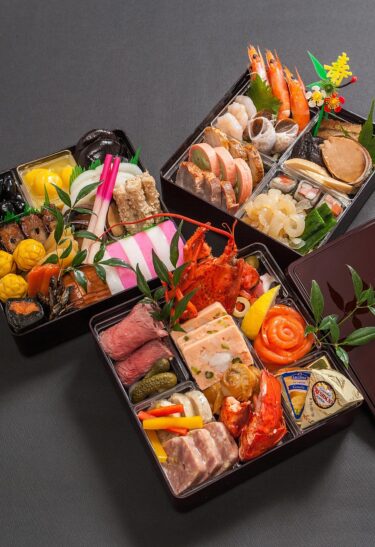
グローバル化が進む現代、外国人の同僚や友人に日本の独特な職場文化を説明する機会が増えています。
しかし、日本特有の慣習や考え方を英語で正確に伝えるのは意外と難しいもの。
今回は、飲み会文化から残業、年功序列まで、
日本の職場文化を外国人にわかりやすく説明するための英語表現をご紹介します。
目次
日本の職場文化の基本概念
集団主義の説明
- “Japanese workplace culture emphasizes group harmony over individual achievement.”
(日本の職場文化は個人の成果よりも集団の調和を重視します) - “We prioritize teamwork and consensus-building in decision-making.”
(私たちは意思決定において、チームワークと合意形成を優先します) - “The concept of ‘wa’ (harmony) is fundamental in Japanese companies.”
(「和」(調和)の概念が日本企業の基本です)
階層構造の説明
- “Japanese companies have a clear hierarchical structure.”(日本企業には明確な階層構造があります)
- “Respect for seniority and rank is deeply ingrained in our culture.”(年功と地位への敬意が私たちの文化に深く根ざしています)
- “We use different levels of politeness depending on someone’s position.”(相手の地位によって異なる敬語レベルを使い分けます)
飲み会文化の説明
飲み会の変化する位置づけ
- “Nomikai (drinking parties) were traditionally an essential part of Japanese business culture.”
(飲み会は伝統的に日本のビジネス文化に欠かせない要素でした) - “However, this culture has been declining, especially among younger employees and since the COVID-19 pandemic.”
(しかし、この文化は特に若い従業員の間で、そしてコロナ禍以降、衰退しています) - “Many companies are now shifting to more optional and casual team-building activities.”
(多くの企業が今、より任意でカジュアルなチームビルディング活動にシフトしています)
現代の飲み会事情
- “Younger generations often prefer work-life balance over mandatory after-work socializing.”
(若い世代は強制的な仕事後の付き合いよりも、ワークライフバランスを好むことが多いです) - “Remote work has also reduced opportunities for traditional nomikai.”
(リモートワークも従来の飲み会の機会を減らしています) - “Companies are adapting by organizing lunch meetings or optional online social events instead.”
(企業はランチミーティングや任意のオンライン懇親会を代わりに企画して適応しています)
飲み会のエチケット(参加する場合)
- “When nomikai do happen, junior employees are traditionally expected to pour drinks for their seniors.”
(飲み会が行われる際、後輩社員は伝統的に先輩にお酒を注ぐことが期待されています) - “However, this practice is becoming less strict in modern workplaces.”
(しかし、この慣行は現代の職場ではあまり厳格ではなくなってきています) - “The phrase ‘otsukaresama’ is still used frequently to show appreciation for each other’s hard work.”
(「お疲れ様」という言葉は、お互いの努力に感謝を示すために今でも頻繁に使われます)
残業文化の説明
残業の背景
- “Overtime work, called ‘zangyou,’ is common in Japanese companies.”
(「残業」と呼ばれる時間外労働は、日本企業では一般的です) - “Many employees feel obligated to stay late even if their work is finished.”
(多くの従業員は、仕事が終わっていても遅くまで残らなければならないと感じています) - “Leaving before your boss is often seen as showing lack of dedication.”
(上司より先に帰ることは、しばしば献身的でないと見なされます)
残業の理由
- “There’s an unwritten rule that you shouldn’t leave before your colleagues.”
(同僚より先に帰ってはいけないという暗黙のルールがあります) - “Face time at the office is sometimes valued more than actual productivity.”
(実際の生産性よりも、オフィスでの滞在時間が評価されることがあります) - “Many decisions require consensus, which can lead to longer working hours.”
(多くの決定には合意が必要で、これが長時間労働につながることがあります)
働き方改革の説明
- “The government is promoting ‘work-style reform’ to reduce excessive overtime.”
(政府は過度な残業を減らすため「働き方改革」を推進しています) - “Premium Friday encourages employees to leave early on the last Friday of each month.”
(プレミアムフライデーは、毎月最後の金曜日に早く帰ることを奨励しています)
年功序列制度の説明
基本概念
- “Seniority-based promotion system, called ‘nenkou joretsu,’ is traditional in Japan.”
(「年功序列」と呼ばれる年功昇進制度は日本の伝統です) - “Your length of service often determines your salary and position more than performance.”
(業績よりも勤続年数が給与や地位を決めることが多いです) - “Respect for elders and experience is deeply valued in Japanese society.”
(年長者と経験への敬意は日本社会で深く重んじられています)
メリットとデメリット
- “This system provides job security and predictable career progression.”
(この制度は雇用の安定と予測可能なキャリア進歩を提供します) - “However, it can sometimes discourage innovation and individual initiative.”
(しかし、時として革新と個人の積極性を阻害することがあります)
会議文化の説明
会議の特徴
- “Japanese meetings tend to focus on consensus-building rather than quick decision-making.”
(日本の会議は迅速な意思決定よりも合意形成に重点を置く傾向があります) - “The concept of ‘nemawashi’ – informal consultation before formal meetings – is common.”
(正式な会議前の非公式な相談である「根回し」の概念が一般的です) - “Silent agreement, called ‘chinmoku no doi,’ is often interpreted as consensus.”
(「沈黙の同意」と呼ばれる無言の合意が、しばしば合意と解釈されます)
会議での行動
- “Junior members rarely speak up in meetings unless specifically asked.”
(後輩メンバーは特に求められない限り、会議で発言することはほとんどありません) - “Reading the atmosphere, or ‘kuuki wo yomu,’ is more important than direct communication.”
(直接的なコミュニケーションよりも「空気を読む」ことがより重要です)
新卒一括採用の説明
採用システム
- “Japanese companies typically hire new graduates all at once in spring.”
(日本企業は通常、春に新卒者を一括して採用します) - “This system, called ‘shinsotsu ikkatsu saiyou,’ creates a cohort that starts together.”
(「新卒一括採用」と呼ばれるこのシステムは、一緒にスタートする同期を作ります) - “Job hunting, or ‘shukatsu,’ is a highly structured process for university students.”
(「就活」と呼ばれる就職活動は、大学生にとって非常に構造化されたプロセスです)
終身雇用との関係
- “This is connected to the concept of lifetime employment, though it’s changing.”
(これは終身雇用の概念と関連していますが、変化しています) - “Companies invest in long-term employee development rather than hiring specialists.”
(企業は専門家を雇うよりも、長期的な従業員育成に投資します)
敬語とコミュニケーション
敬語の重要性
- “We use different levels of politeness called ‘keigo’ depending on hierarchy.”
(階層に応じて「敬語」と呼ばれる異なる丁寧さレベルを使います) - “Proper use of respectful language shows understanding of social relationships.”
(敬語の適切な使用は社会的関係の理解を示します)
間接的コミュニケーション
- “Japanese communication tends to be indirect and context-dependent.”
(日本のコミュニケーションは間接的で文脈に依存する傾向があります) - “We often say ‘it’s a bit difficult’ when we mean ‘no.'”
(「ちょっと難しいです」と言うとき、しばしば「だめ」を意味します)
おもてなし精神
サービス精神
- “Omotenashi – the spirit of selfless service – extends to workplace relationships.”
(おもてなし – 無私のサービス精神 – は職場関係にも及びます) - “We believe in anticipating others’ needs before they ask.”
(相手が求める前にニーズを予測することを信じています) - “Customer service in Japan goes beyond just meeting expectations.”
(日本の顧客サービスは期待に応えるだけでなく、それを超えます)
現代の変化
働き方の変化
- “Younger generations are challenging traditional workplace norms.”
(若い世代は伝統的な職場規範に挑戦しています) - “Remote work and flexible schedules are becoming more accepted.”
(リモートワークと柔軟なスケジュールがより受け入れられるようになっています) - “Work-life balance is gaining more attention in modern Japan.”
(ワークライフバランスは現代日本でより注目を集めています)
外国人への配慮
文化的違いの説明
- “We understand these customs might seem strange to foreigners.”
(これらの慣習は外国人には奇妙に見えるかもしれないことを理解しています) - “It’s not about right or wrong, just different cultural approaches to work.”
(正しいか間違いかではなく、仕事への異なる文化的アプローチです) - “We’re gradually adapting to international business practices.”
(私たちは徐々に国際的なビジネス慣行に適応しています)
まとめ
日本の職場文化を英語で説明することは、異文化理解の第一歩です。
これらの表現を使って、日本独特の働き方や考え方を外国人に分かりやすく伝えましょう。
同時に、相手の文化も尊重し、お互いの違いを理解し合うことが、真のグローバルコミュニケーションにつながります。
文化は常に変化しているものであり、現代の日本も伝統と革新のバランスを取りながら進歩していることも併せて伝えられると良いでしょう。










